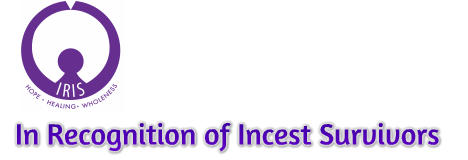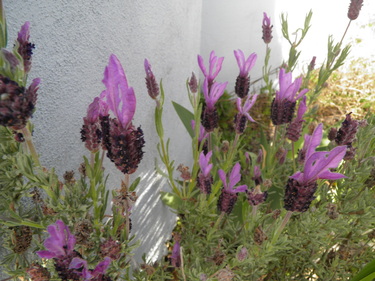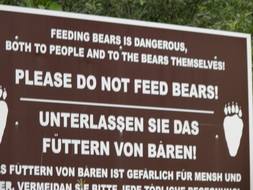Living as mature and adult beings accountable for our own experiences on the planet is impossible without first knowing ourselves. Becoming aware of ourselves to the extent that we can observe our own behavior, analyze it, and become responsible for our own choices, is a major step toward growing into autonomous human beings. When we are aware of ourselves, we can maintain the semi-permeable
membrane of healthy boundaries - so that what flows out from us to other people is benign and appropriate, and what we allow into our inner sanctum from other people also is benign and appropriate.
We can keep ourselves from being dangerously vulnerable, yet we do not erect barricades that keep us from experiencing positive interactions with other
people.
When we grow up and begin to find our own path, an important part of discerning the direction of our lives is to identify the messages we were given about ourselves as children and to decide how we feel about them. When we are old enough, we can make a conscious decision about what to keep and what to discard from our old system of beliefs about ourselves, which was based on what we were taught by our caregivers in childhood and, in adolescence, by our peer cliques. This discernment in early adulthood usually is an unremarkable process that takes place in the background of our life’s activity, much as my computer runs a backup of my system as I type. For people who were severely abused as
children, however, the program that develops self-awareness in us as adults could probably use some debugging. We simply were denied the tools to take this step.
Fortunately, many resources are available to help expand our awareness of this responsibility such as books, therapy groups, and twelve-step programs. However, it can be a remarkable step forward merely to become conscious of our responsibility to examine our lives and decide whether we like ourselves in the context of our choices or whether we should make different choices to get better results. This action can feel awkward at first, but with a little practice we have found it to be a rewarding, and often, exhilarating exercise.
children, however, the program that develops self-awareness in us as adults could probably use some debugging. We simply were denied the tools to take this step.
Fortunately, many resources are available to help expand our awareness of this responsibility such as books, therapy groups, and twelve-step programs. However, it can be a remarkable step forward merely to become conscious of our responsibility to examine our lives and decide whether we like ourselves in the context of our choices or whether we should make different choices to get better results. This action can feel awkward at first, but with a little practice we have found it to be a rewarding, and often, exhilarating exercise.
The right to set our boundaries, to change our boundaries when necessary, and to insist that others respect them are some of the most important healing tools we can cultivate within ourselves. When we make a conscious effort to study the messages we were given about boundaries as children by the significant adults in our lives, and when we analyze the way our boundaries were compromised by the abuse we have survived, we begin to build a respectful relationship with ourselves. We extend this new, respectful relationship to other people by honoring their boundaries and expecting them to honor ours. This practice tends to even out the power dynamics in relationships and allow for an egalitarian, more authentic connection with one another.
The main things we want everyone to know about a survivor’s right to set appropriate boundaries:
· Incest victims have their boundaries, and their very sense of self, obliterated by the
perpetrator.
· Damage to boundaries in such a calamitous manner can set us up for complications in our
relationships to ourselves and others.
· Reconstruction of healthy and appropriate boundaries is a courageous endeavor in which we examine and analyze the unhealthy ways we have used our boundaries to protect
ourselves from pain and fear. Most people have the capacity to do this reconstructive work and much help is available.
· Boundaries are a semi-permeable membrane in which we allow parts of ourselves to flow out to others, specific parts of others to flow in to ourselves, and some things just stay right where they are, as we choose.
· We need to accept that people don’t like some things about us, don’t approve of us, or just plain don’t like us, period. Sometimes the best measure of a person is the quality of their enemies.
· The best way to help someone develop healthy boundaries is to nurture our own.
· Every “Right” in this Incest Survivor’s Bill of Rights is a statement about healthy
boundaries.
· Healthy boundaries begin with our relationship to ourselves.
perpetrator.
· Damage to boundaries in such a calamitous manner can set us up for complications in our
relationships to ourselves and others.
· Reconstruction of healthy and appropriate boundaries is a courageous endeavor in which we examine and analyze the unhealthy ways we have used our boundaries to protect
ourselves from pain and fear. Most people have the capacity to do this reconstructive work and much help is available.
· Boundaries are a semi-permeable membrane in which we allow parts of ourselves to flow out to others, specific parts of others to flow in to ourselves, and some things just stay right where they are, as we choose.
· We need to accept that people don’t like some things about us, don’t approve of us, or just plain don’t like us, period. Sometimes the best measure of a person is the quality of their enemies.
· The best way to help someone develop healthy boundaries is to nurture our own.
· Every “Right” in this Incest Survivor’s Bill of Rights is a statement about healthy
boundaries.
· Healthy boundaries begin with our relationship to ourselves.
For Family, Friends, and Neighbors
Each Right in this Incest Survivor’s Bill of Rights is an exercise in finding and maintaining healthy and appropriate boundaries, for you and for others in relationship to you. We cause much pain for ourselves and others in our recovery process if we ignore the need for a conscious examination of our own boundaries and how we use them to bring the world close or push it away. If your survivor is a member of your own family, be aware that the boundary issues you observe in us probably also exist, to some extent, within you. We often observe traits in others that we most need to become aware of within ourselves.
Often we can think of relationships with our incest survivors in two pieces - before we knew about the incest and after. As difficult as it has been to face the terrible truth about what
might have happened to them on our watch, our relationships become so much healthier when we can talk about who we really are -and what really happened.
We strive to be comfortable telling one another where our boundaries are - we trust
that any request to have them respected will be honored by the others, and we
never hesitate to ask. When we always can let each other know where our boundaries are, no subject is taboo, at least to some extent. The ability to share on any level, or to have permission to decline to share, is a precious gift we can give one another.
An important gift you can give to us as survivors is to make no subject off limits, but never, ever push unless you feel we are in danger. Above all, read up on the subject of
codependency, and try to be aware of the sad but critically important fact that you cannot heal us. You can be supportive, loving, encouraging, stalwart, and faithful. You can offer resources, lend an ear, and accompany us to court. The one thing you cannot do is heal for us -no, more than that - you cannot make us want to heal. Our desire to heal and our program for doing it must be our own. No matter how guilty you might feel about what we have been through, no amount of self-sacrifice is going to put us on a healing path if we do not want to be there - you will be depleted, and we will not be any better off.
We might be on a path of self-destructive behavior based upon our woundedness. We might be stuck in victim mode. Hold us accountable. Hold an intervention. Tell us how you
feel. Do not bail us out. Let us hit bottom, and then be there for us when we are ready to do something more positive with our lives.
Often we can think of relationships with our incest survivors in two pieces - before we knew about the incest and after. As difficult as it has been to face the terrible truth about what
might have happened to them on our watch, our relationships become so much healthier when we can talk about who we really are -and what really happened.
We strive to be comfortable telling one another where our boundaries are - we trust
that any request to have them respected will be honored by the others, and we
never hesitate to ask. When we always can let each other know where our boundaries are, no subject is taboo, at least to some extent. The ability to share on any level, or to have permission to decline to share, is a precious gift we can give one another.
An important gift you can give to us as survivors is to make no subject off limits, but never, ever push unless you feel we are in danger. Above all, read up on the subject of
codependency, and try to be aware of the sad but critically important fact that you cannot heal us. You can be supportive, loving, encouraging, stalwart, and faithful. You can offer resources, lend an ear, and accompany us to court. The one thing you cannot do is heal for us -no, more than that - you cannot make us want to heal. Our desire to heal and our program for doing it must be our own. No matter how guilty you might feel about what we have been through, no amount of self-sacrifice is going to put us on a healing path if we do not want to be there - you will be depleted, and we will not be any better off.
We might be on a path of self-destructive behavior based upon our woundedness. We might be stuck in victim mode. Hold us accountable. Hold an intervention. Tell us how you
feel. Do not bail us out. Let us hit bottom, and then be there for us when we are ready to do something more positive with our lives.



